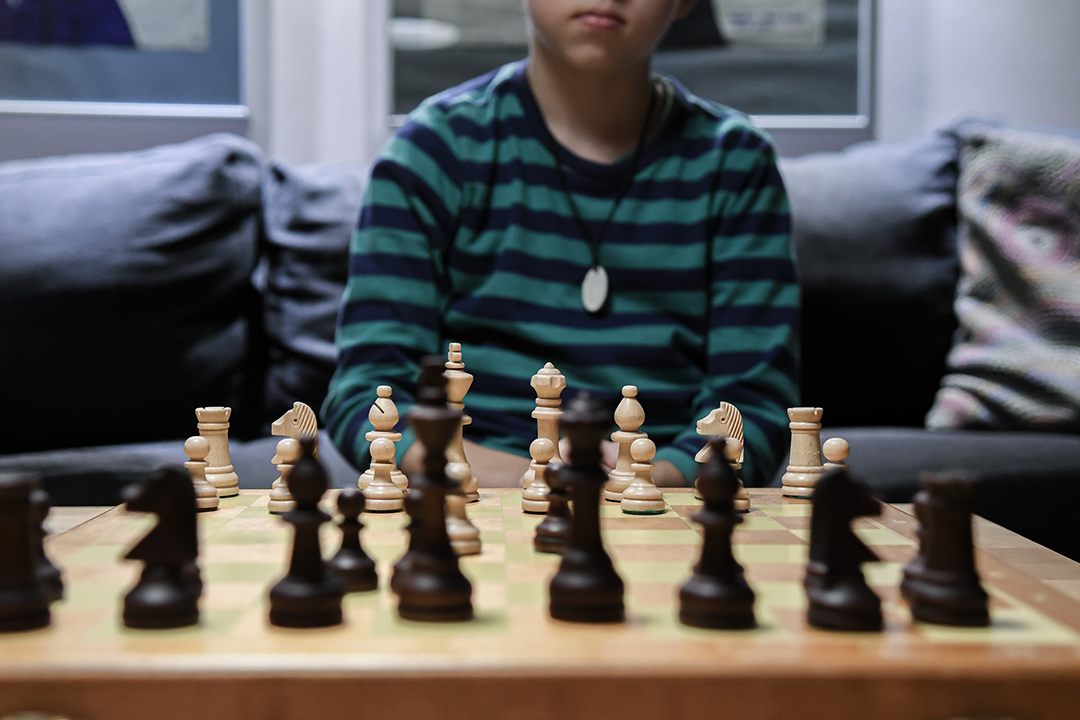There’s no shortage of books providing instructions on the great game itself, with anyone, whatever level, being able to locate expert help at the turn of a page. However, the sheer volume of books presents a problem of its own – which book offers you the most suitable advice? It can seem overwhelming to pick just one or two to have on your shelf.
We’ve done the work for you by searching the vast chess library, selecting our best books, and giving you an overview of each one. Although a book is no substitute for online tutor-based learning whether that’s one to one, group, or attending a workshop on your chosen topic, it provides a good grounding and means you can dip in and out whenever you need to. RetiOpening tutors are always happy to recommend books that would help you work on any issues between lessons.
1. Chess: How to Play Chess for (Absolute) Beginners (Chess for Beginners) by Maxen Tarafa
This bookshelf staple is in its second edition and the author has a real understanding of how it feels to be faced with the overwhelming confusion of rules and strategies as a novice to the board. Easy to read with a relaxed, approachable style and ready humor, Tarafa has written an excellent beginner’s guide to chess.
How to Play Chess covers each individual piece, their uses, and moves, goes on to discuss predicting your opponent’s moves, and guides you through planning ahead using visualization. The author’s love for the game is infectious, and his book offers insight and basic instructions whilst avoiding heavy jargon and strategy-led talk.
2. Chess for Beginners: A Complete Overview of the Board, Pieces, Rules, and Strategies to Win by Game Nest
Starting with a fascinating history of chess, this book goes on to explain the board, offering low-key, easy methods to remember the important points of each playing piece. It tackles beginner strategies, keeping the content jargon-free and simple to follow – including images that help clarify the meanings, and in the last part, how to take your game to the next level.
Focused on the younger player, it’s pleasantly accessible for mature beginners too, turning the most complex moves into an easy-to-follow guide. A very enjoyable book.
3. Simple Checkmates: More Than 400 Exercises for Novices of All Ages! by A.J. Gilliam
Simple Checkmates provides much more than mere checkmates. Taking novices on a fascinating tour of the chess world, Gilliam covers the fundamentals of the game. Using clear diagrams, basic chess moves are discussed, ensuring the reader understands the foundations before moving forward.
Turning learning into a game, the author presents a series of over 400 chess positions, broken down into logical sections. By asking the player to decide on the next move or sequence of moves, the book offers fun challenges, removing any pressure to perform.
Recommended by many of the world’s top chess pros, this is a must for any would-be expert.
4. Bobby Fischer Teaches Chess by Bobby Fischer
Grandmaster and eleventh World Chess Champion, Bobby Fischer is arguably one of the greatest chess players that ever lived, and his legacy continues with this book. Written for ages 12 and above, it uses Fischer’s tried and tested programmed learning method. Once the basics are understood, the beginner is asked a question. If they give the correct answer, they move forward. However, if the answer is incorrect, an explanation is presented, and the reader can try again.
Although aimed at beginners, more advanced players can learn much by adopting Fischer’s methods, and even experts will improve their gameplay. Designed with a unique easy-to-follow format, it’s packed with Fischer’s humor, tips, and tricks to make learning chess fast, efficient and above all, fun.
5. Chess Openings for Beginners: The Complete Chess Guide to Strategies and Opening Tactics to Start Playing like a Grandmaster by Craig Medina
Part one of a three-book series, Chess Openings for Beginners is exactly that – it covers the all-important first moves in a game of chess. However, it includes much more besides.
Giving insight into the complex dance between players, the book provides a greater understanding of how each opening move affects the middle and end games. With user-friendly content and straightforward diagrams, Medina talks you through the important points. He covers the moves to avoid, famous openings, including the Sicilian Defense and the Ruy Lopez, and the best openings for beginners to start with, such as the Queen’s Gambit and the Slav Defense.
Medina also explains how to predict your opponent’s response and the strategies that take you through an efficient middle game and onto a successful conclusion. In this section, he also gives an understanding of psychology and its role during the opening moves in a chess game.
Chess Openings for Beginners is an easily digestible addition to any chess fan’s library and is well worth reading.
If these books have whetted your appetite for more, schedule a one-to-one or group lesson with one of our RetiOpening coaches, or book an online workshop – we have a wide range of topics for you to select.



